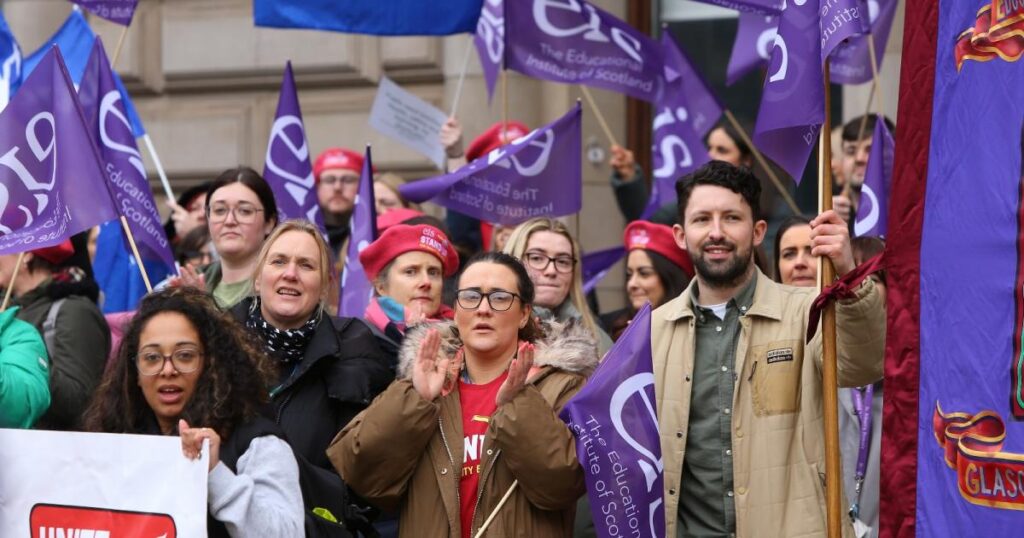The union has been given a commitment that the planned budget cuts in Glasgow will no longer take place.
Talks between the EIS union and council representatives were held with less than two weeks before the strike date.
READ NEXT:First date of Glasgow teacher strikes announced
Following the meeting, the councillor in charge of workforce, Allan Casey, has written to the union with proposals that are hoped to resolve the issues that led to the strike.
EIS called the strike over the planned cuts that would slash teacher numbers in the city.
The Glasgow Times asked for an update on the talks to resolve the strike.
Casey wrote to the union’s Glasgow branch rep, Jane Gow to confirm the plans.
The education cuts for the next two years will not be implemented and the council will find £17m in the budget to fund this.
Also, a commitment has been given that teacher numbers will be increased.
In the letter, Councillor Casey, stated: “I can confirm that the budget that we present on 20th February will remove the future years teacher’s savings. We will find £17 million over two years to fund this.
“I hope you agree that it represents a significant commitment to our teaching workforce and to the quality of education in the city.
“I hope this will be welcome news to your members.”
The cuts over three years were reported to see teacher numbers cut by around 450 in the city.
Following the meeting, it has been agreed the council will use funding from the Scottish Government to increase teacher numbers.
Casey added: “We also spoke at the meeting about a route map towards increasing the number of teachers in Glasgow to the 2023 baseline figure in line with the commitment that we signed up to as part of COSLA.
“We will use the additional funding that we received from the Scottish Government to increase the number of teachers”
When the strike was called earlier this month Andrea Bradley, EIS general secretary, said: “EIS members across Glasgow remain resolute and determined to fight these destructive and dangerous cutbacks by the council, which are damaging education provision in Glasgow and causing irreparable harm to the learning experience of thousands of young people in Glasgow’s schools.
“It is not too late for Glasgow City Council to hold their hands up, admit that they have got this very badly wrong, and agree to cancel their programme of deep education cuts.”
The Glasgow Times has attempted to contact the EIS.




